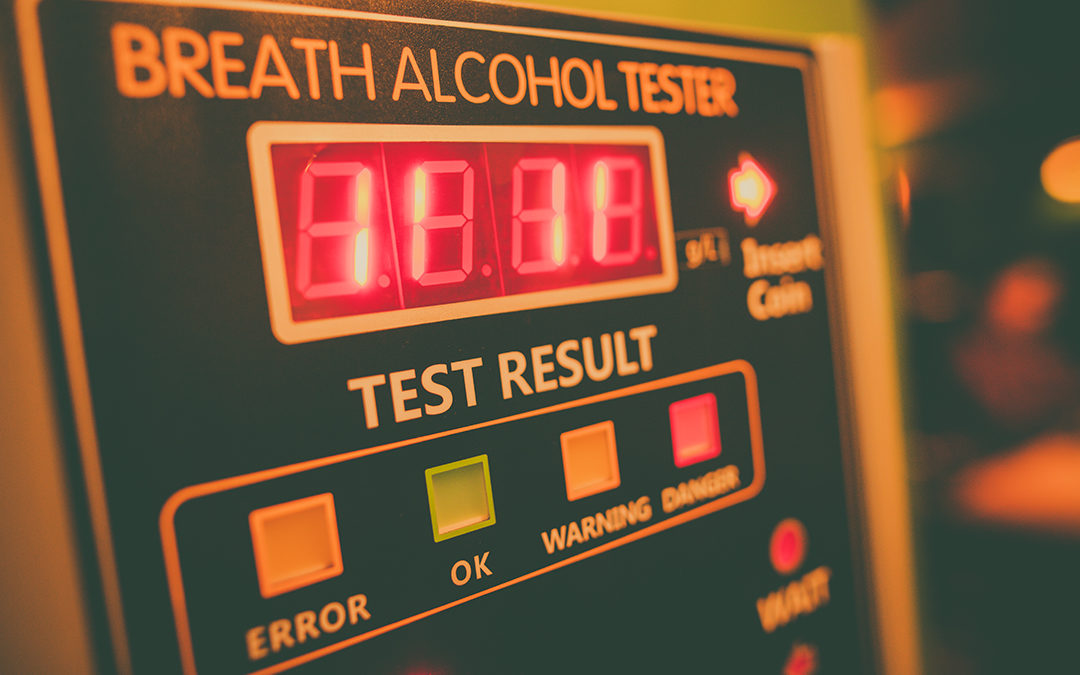When pulling a driver over for a DWI, an officer will often ask the motorist to take a test to determine their blood alcohol concentration (BAC). At Ludlum Law Firm, we’ve had numerous clients asking if they have to take one and what happens if they refuse.
The state laws that apply to DWI (Driving While Impaired) charges in North Carolina are incredibly complex. The simple answer is that you do have the legal right to refuse. But there are consequences for refusing, and they can be severe.
Here is what you need to know about refusing a DWI alcohol screening test.
North Carolina implied consent.
In North Carolina, motorists arrested for a DWI are required to take an alcohol screening test. According to the state’s “implied consent” law, if you’re lawfully arrested by an officer who has probable cause to believe you’ve been driving while intoxicated, then you must consent to taking a test to determine your BAC.
The alcohol screening test can be given within three hours and forty-five minutes after a motorist has driven, as explained in the case State v. Patterson, 708 SE 2d 133 (2011). Sometimes the test is given before a person is arrested. This can happen at checkpoints, accidents, or if you’re caught breaking a traffic rule as the result of being under the influence.
Refusing to take an alcohol test.
The consequence of a first-time refusal to take the test is a one-year license suspension. The officer should make you aware of this and give you a notice in writing before you make your decision.
In many instances, with assistance from a DWI law office like Ludlum Law Firm, first-time refusers have been granted limited driving privileges (LDP) within specific periods. This exemption is allowed only if you meet particular criteria, including not receiving a DWI in the past seven years. If you agree to take the test, you may have to take a secondary test. Officers use three different screening tests, including a portable breath tester (PBT), EC/IR II machine, and blood draw.
[Has your underage child been charged with a DWI? Click here!]
What’s my best option?
This can be a complicated question to answer. Examining the question for each of the measuring devices is the best way to tackle it.
- PBT – For starters, there is no legal impact in refusing to blow into an officer’s PBT. In fact, the results of that blow are not admissible in court. Only whether the PBT registered the presence of alcohol itself is admissible, not the numerical level of alcohol detected. Refusing to take this test has no consequence.
- ECIR II – This is the “real” blow machine, the one that counts for purposes of a refusal. A picture of an ECIR II can be found here. So long as proper procedure is followed in administering this test, a refusal to submit to it will result in a one-year license suspension by the DMV. However, there are instances when refusing to blow may be the right decision depending on how much a person has consumed, whether he has prior convictions, and numerous other factors. There is no correct answer to the question of “should I blow or not.” By law, you are given a period to contact an attorney before you take the test. Contact Ludlum Law Firm during this period, and based on your answers to a few questions, we can steer you in the right direction. Our voicemail is monitored around the clock if you are stopped after business hours.
- Blood Draw – Blood draws are usually administered when an officer suspects that drugs are the impairment source. The ECIR II does not detect the presence of impairing drugs; blood tests do. If a person refuses to submit to a blood test, he will lose his license for a year. In addition, an officer under certain circumstances can compel a blood test with a warrant.
Contact a DWI attorney.
If you’ve been arrested and charged for a DWI, we recommend getting help from an experienced attorney. Our Sampson County and Duplin County DWI lawyers will fight for your rights and ensure your case results in the best possible outcome.
Don’t hesitate, give us a call today or fill out our contact form to schedule a consultation!


